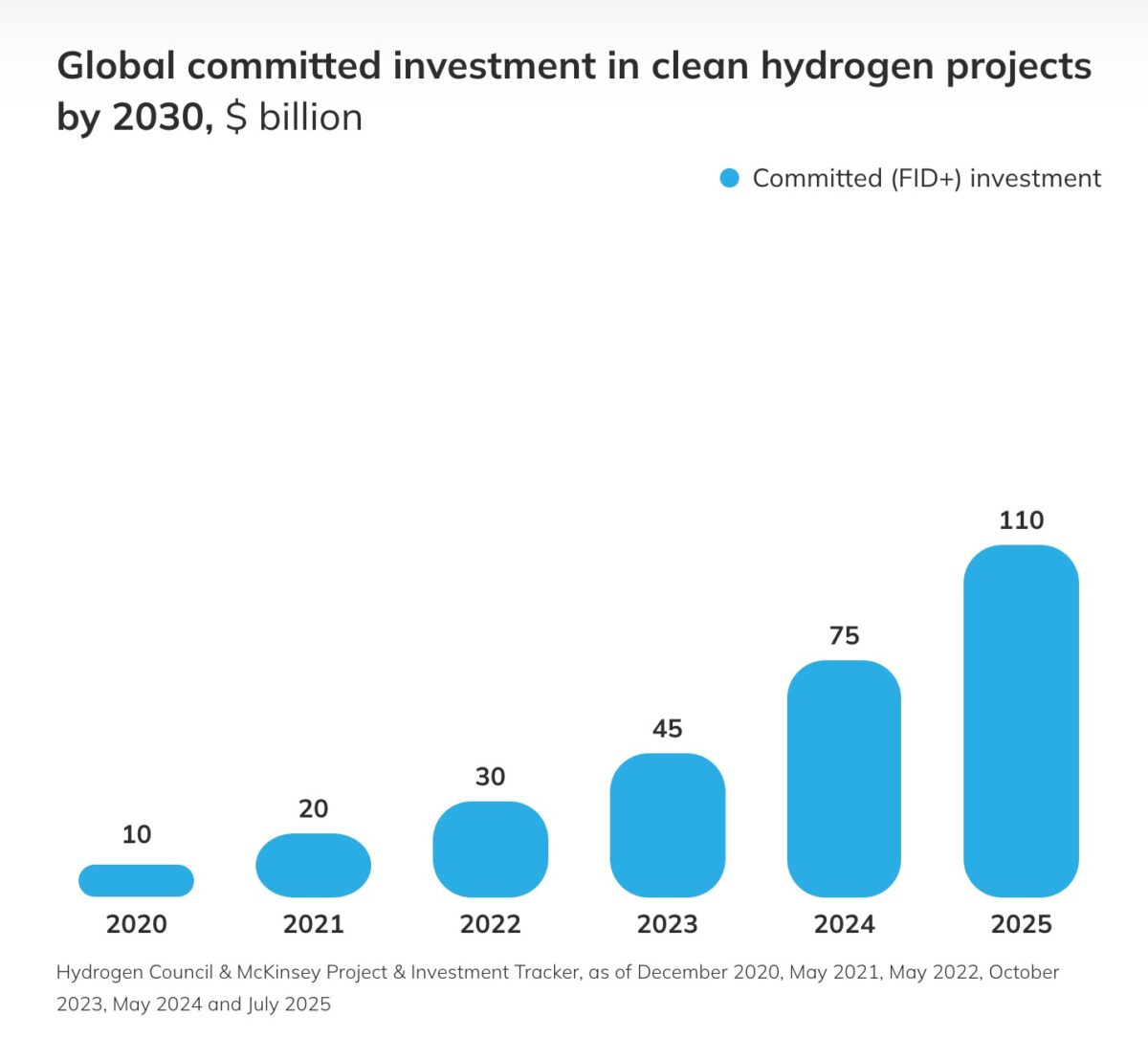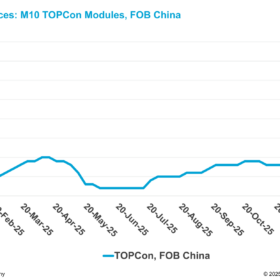The global hydrogen industry has surpassed $110 billion in investments, according to the Hydrogen Council.
The figure marks a $35 billion increase from last year. Since 2020, the global hydrogen sector has averaged a 50% year-on-year growth rate in committed investments.
The council’s inaugural “Global Hydrogen Compass” report identified 510 projects worldwide that are past final investment decisions, under construction, or operational. Since 2020, more than 1,700 projects have been announced, equal to a 7.5-fold increase.
China leads with $33 billion in committed investments, followed by North America with $23 billion and Europe with $19 billion. India has invested $14 billion, while the Middle East has invested $11 billion. Japan and South Korea together account for $6 billion, South America for $2 billion and Oceania for $1 billion.
Total committed capacity now exceeds 6 million mtpa, including 1 mtpa already in operation. The council said the current pipeline could support 9 mtpa to 14 mtpa of clean hydrogen by 2030, but demand must materialize.
The Hydrogen Council said locking in offtake remains critical for most supply projects. About 3.6 mtpa of binding offtake has been secured to date, equal to 60% of committed project capacity. The council forecast up to 8 mtpa could materialize by 2030 in the European Union, United States, Japan and South Korea, but stressed that will require full implementation and enforcement of existing policies.
Roughly 50 projects have been publicly canceled in the past 18 months, equal to about 3% of the total pipeline. Most were early-stage ventures that failed due to high interest rates and delayed policy measures. The council’s analysis said projects with stronger business cases are advancing, while weaker ones are being withdrawn, reflecting a maturing industry.
Sanjiv Lamba, Hydrogen Council co-chair, claimed that the global hydrogen sector is at a “pivotal juncture.”
“Accelerating market creation and securing binding offtake agreements must become the priority to ensure today’s projects deliver real impact,” Lamba said. “Achieving this will require stronger collaboration between business and government to build the frameworks and partnerships essential for progress.”
This content is protected by copyright and may not be reused. If you want to cooperate with us and would like to reuse some of our content, please contact: editors@pv-magazine.com.








By submitting this form you agree to pv magazine using your data for the purposes of publishing your comment.
Your personal data will only be disclosed or otherwise transmitted to third parties for the purposes of spam filtering or if this is necessary for technical maintenance of the website. Any other transfer to third parties will not take place unless this is justified on the basis of applicable data protection regulations or if pv magazine is legally obliged to do so.
You may revoke this consent at any time with effect for the future, in which case your personal data will be deleted immediately. Otherwise, your data will be deleted if pv magazine has processed your request or the purpose of data storage is fulfilled.
Further information on data privacy can be found in our Data Protection Policy.